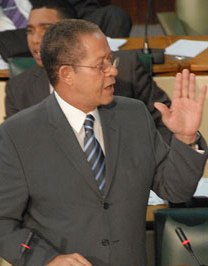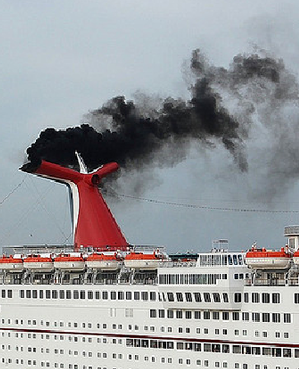Archive for December 9th, 2010

Half of Europe overweight reveals OECD report
(AFP): More than half of European adults are now overweight and too many children smoke or are obese, raising the risk of cancer or heart attacks, a European health report showed Tuesday.
Just over 15 percent of adults in the European Union are obese, a rate that has more than doubled over the past 20 years in most EU states, the study found. The obesity rate ranges from less than 10 percent in Romania and Italy to more than 20 percent in Britain, Ireland and Malta, said the report issued by the European Commission and the Organisation for Economic Cooperation and Development (OECD).
Among children aged between 11 and 15, one in seven is overweight or obese across the 27-nation bloc, and the figure will rise, the report said. The rate is higher in southern Europe, where one in five suffers from excessive weight.
"Children who are obese or overweight are more likely to suffer from poor health later in life, with a greater risk of developing heart disease, diabetes, some forms of cancer, arthritis, asthma, a reduced quality of life and even premature death," the commission said.

Dudus extradition inquiry to begin in New Year
 (BBC): A hearing will begin in January on which the future of Jamaica’s Prime Minister Bruce Golding could hinge. A commission of inquiry will examine Golding and his government’s handling of the American extradition request for Christopher ‘Dudus’ Coke, an alleged drug lord. In late May a hunt for Coke in his Tivoli Gardens stronghold led to a confrontation that killed at least 73 civilians and three security officers. Golding’s popularity suffered in the wake of the execution of the extradition warrant. Critics have complained that Golding’s initial reluctance to hand over Coke gave the suspect and his supporters too much time to prepare for a confrontation in inner-city West Kingston.
(BBC): A hearing will begin in January on which the future of Jamaica’s Prime Minister Bruce Golding could hinge. A commission of inquiry will examine Golding and his government’s handling of the American extradition request for Christopher ‘Dudus’ Coke, an alleged drug lord. In late May a hunt for Coke in his Tivoli Gardens stronghold led to a confrontation that killed at least 73 civilians and three security officers. Golding’s popularity suffered in the wake of the execution of the extradition warrant. Critics have complained that Golding’s initial reluctance to hand over Coke gave the suspect and his supporters too much time to prepare for a confrontation in inner-city West Kingston.

World is getting more corrupt, says transparency poll
 (BBC): The world is considered a more corrupt place now than it was three years ago, a poll suggests. Some 56% of people interviewed by Transparency International said their country had become more corrupt. The organisation put Afghanistan, Nigeria, Iraq and India in the most corrupt category, followed by China, Russia and much of the Middle East. Meanwhile, a BBC poll suggests that corruption is the world’s most talked about problem. About one in five of those polled by the BBC said they had discussed issues relating to corruption with others in the last month, making it the most talked about concern ahead of climate change, poverty, unemployment and rising food and energy costs.
(BBC): The world is considered a more corrupt place now than it was three years ago, a poll suggests. Some 56% of people interviewed by Transparency International said their country had become more corrupt. The organisation put Afghanistan, Nigeria, Iraq and India in the most corrupt category, followed by China, Russia and much of the Middle East. Meanwhile, a BBC poll suggests that corruption is the world’s most talked about problem. About one in five of those polled by the BBC said they had discussed issues relating to corruption with others in the last month, making it the most talked about concern ahead of climate change, poverty, unemployment and rising food and energy costs.
In the Transparency International survey, political parties were regarded as the most corrupt institutions, and 50% of people believed their government was ineffective at tackling the problem.

Outlook in age of austerity
 (CNS): Nest year’ annual Cayman Business Outlook conference will be examining the financial reality in a time of austerity organizers announced on Wednesday. Chairman of Fidelity Group, the conference’s main sponsor Anwer Sunderji, said that the topic for CBO reflected the general view that 2011 will be another difficult year for the global economy. With Asian successes reshaping the world business stage he warned of more deficits and “tapped out consumers.” Alongside an address from the Cayman premier there will be a range of diverse speakers including Clive Crook an economic journalist who spent more than 20-year’s on the Economist and now an FT commentator on economics and politics who will explain the meaning of the conference title.
(CNS): Nest year’ annual Cayman Business Outlook conference will be examining the financial reality in a time of austerity organizers announced on Wednesday. Chairman of Fidelity Group, the conference’s main sponsor Anwer Sunderji, said that the topic for CBO reflected the general view that 2011 will be another difficult year for the global economy. With Asian successes reshaping the world business stage he warned of more deficits and “tapped out consumers.” Alongside an address from the Cayman premier there will be a range of diverse speakers including Clive Crook an economic journalist who spent more than 20-year’s on the Economist and now an FT commentator on economics and politics who will explain the meaning of the conference title.
“Economic growth will be uneven with emerging markets showing the most promise and with most of the industrialized nations grappling with the residual impact of the great recession,” Sunderji said about the theme. “The outperformance of the emerging markets in Asia, particularly in India and China, will reshape the world for decades to come resulting in a US with a diminished role on the world stage.”
He said China’s economy will be as large as that of the US by 2020 but the rest of the industrialized world will face sizeable headwinds from continuing high levels of unemployment, troubled banks, large deficits and a tapped out consumer.
“The change in financial strength of the major countries will reshape the geo-political landscape and diminish the role the US plays on the world stage.” He added that institutions such as the European Union, the IMF and the World Bank will have to change and adapt to the new reality. He said “It is possible that the EU may not survive in its present form and the role of the US as the global policeman will likely be curtailed”.
Attracting over 300 attendees from a broad cross-section of the professional and business community CBO is now in its 8th successive year. The 2011 event themed “Uncharted Waters – The New Economic, Political and Financial Reality in an Age of Austerity” takes place at the Ritz-Carlton, on 20 January.
Fidelity president Brett Hill said that the conference was expected to appeal to a broad cross section of the community as it addressed the impact the global financial restructuring was having on world order.
“There will likely be 5 years before employment levels in the industialized world return to their pre-recession levels. During this time, the US and many European countries will have to retool and reengineer their economies to become competitive and to restore economic growth. This will require enormous sacrifice from their citizens,” he added.
Rounding out the topic will be a local panel debate that will engage the attendees and the public at large. It will discuss the conflicting demands on the Caymanian Government for fiscal austerity without sacrifice, i.e. no taxes, no wage cuts, more free services, more jobs, less crime, etc.
McKeeva Bush the premier and minister of finance will open CBO in the morning and the popular ‘Local Debate’ will bring the afternoon sessions to a close prior to the cocktail reception. Aside from Crook, Michael Pettis an expert on China and emergingeconomies will reveal an insiders perspective on the Chinese economy. Senator Vincent Vanderpool Wallace, in the Bahamas will address tourism in the new normal and Professor Edward Kolodziej, Director of the Centre for Global Studies, University of Illinois will examine how Washington is coping with a World at Risk.

No let up on storms for next year
 (CNS): The 2010 storm season may have only just finished, but the experts at Colorado State University are already turning their attention to the next season which they say will be just as busy. In its first prediction for the 2011 Atlantic hurricane season the forecasting team anticipates 17 tropical storms, with nine of those strengthening into hurricanes and at least one major hurricane in the Caribbean region. The team said five hurricanes will grow into "major" systems of category 3 or higher the same as 2010. The experts said sea surface temperatures in the North Atlantic were still at record warm levels, indicating the region is still in a multi-decade period of high activity for hurricanes.
(CNS): The 2010 storm season may have only just finished, but the experts at Colorado State University are already turning their attention to the next season which they say will be just as busy. In its first prediction for the 2011 Atlantic hurricane season the forecasting team anticipates 17 tropical storms, with nine of those strengthening into hurricanes and at least one major hurricane in the Caribbean region. The team said five hurricanes will grow into "major" systems of category 3 or higher the same as 2010. The experts said sea surface temperatures in the North Atlantic were still at record warm levels, indicating the region is still in a multi-decade period of high activity for hurricanes.
The forecasters said it seemed unlikely that El Nino would develop in regard to the 2011 season. El Nino is a warming of the tropical Pacific that produces wind patterns that squelch development of tropical storms in the Atlantic.
The early extended-range forecast from the team led by William Gray and Phil Klotzbach also predicted more hurricanes will make landfall inthe US next year. There is a 73 percent chance at least one of them will be a “major” storm, with winds of 111 mph (179 kph) or higher, they said.
In 2010 the Atlantic saw 19 tropical storms and 12 hurricanes tying with 1887 and 1995 for the third-highest storm total on record.

Ships in Caribbean to face penalties over emissions
 (Bloomberg): US Federal officials are looking to clear the air in two US Caribbean territories by requiring cruise liners, tankers and other large ships in the region to reduce their emissions or face penalties. The plan is to take effect in late 2013. It will target ships traveling in waters aroundPuerto Rico and the U.S. Virgin Islands, which have some of the busiest ports in the Caribbean, Judith Enck, regional administrator for the U.S. Environmental Protection Agency, said Wednesday. "There is a real problem with local pollution," Enck said. The Port of San Juan in Puerto Rico sees more than 1 million cruise ship passengers every year, along with nearly 3,800 cargo ships laden with 11 million metric tons of goods.
(Bloomberg): US Federal officials are looking to clear the air in two US Caribbean territories by requiring cruise liners, tankers and other large ships in the region to reduce their emissions or face penalties. The plan is to take effect in late 2013. It will target ships traveling in waters aroundPuerto Rico and the U.S. Virgin Islands, which have some of the busiest ports in the Caribbean, Judith Enck, regional administrator for the U.S. Environmental Protection Agency, said Wednesday. "There is a real problem with local pollution," Enck said. The Port of San Juan in Puerto Rico sees more than 1 million cruise ship passengers every year, along with nearly 3,800 cargo ships laden with 11 million metric tons of goods.
Some 800 cruise ships arrive every year in nearby St. Thomas, which is the largest cruise port in the U.S. Virgin Islands.
Under the plan, ships will have to use cleaner fuel or install special equipment to reduce air pollution.

New hope for teen offenders
 (CNS): The minister of community affairs says that the whole approach to how the country deals with young offenders is going to change but there are challenges when it comes to sending them overseas to boot or survival camps and other rehabilitation centres because of immigration problems. In the wake of a conditional discharge given to a teen last week on a gun offence, because of the limited options under a rehabilitation order, Mike Adam said he was working towards finding ways of sending teens to a specialist centre in Missouri. Last Friday a sixteen year old, boy convicted of possession of an unlicensed firearm was discharged by the court on the condition that he attendsa rehab unit in the United States.
(CNS): The minister of community affairs says that the whole approach to how the country deals with young offenders is going to change but there are challenges when it comes to sending them overseas to boot or survival camps and other rehabilitation centres because of immigration problems. In the wake of a conditional discharge given to a teen last week on a gun offence, because of the limited options under a rehabilitation order, Mike Adam said he was working towards finding ways of sending teens to a specialist centre in Missouri. Last Friday a sixteen year old, boy convicted of possession of an unlicensed firearm was discharged by the court on the condition that he attendsa rehab unit in the United States.
Justice Smith had wanted to make a rehabilitation order for the teen offender to go to the Second Nature Wilderness programme in Georgia, a specialist treatment centre for youngsters with drug and behavioural problems, and then on to a boarding school as his sentence for the crime under the youth justice law. However, as only Tranquillity Bay in Jamaica which is now closed, the Francis Bodden Home, a girl’s institution and the Bonaventure Boys Home are gazetted in the law for rehabilitation orders the judge chose a different approach.
Giving the young person a conditional discharge means he avoided the problem of a criminal record which stands in the way of youngster being sent to the United States on rehabilitation orders. The judge made the teen’s attendance at the centre, which his parents are voluntarily paying for, a condition of his discharge while at the same time placing him under the supervision of a social worker to ensure compliance.
The issue of being able to send youngsters with a criminal conviction against them overseas however, presents problems Adam explained but said his ministry is working to try and find a way to send youngsters to the Missouri Youth Services Institute (MYSI) — the centre which Cayman’s own young offenders institute will be based on when it is finished.
“We are making further enquiries to determine if we can make this a reality,” he said adding that Cayman would soon have its own purpose built facility.
He said the law needs to be changed with regard to the institutes that are gazetted but he also spoke about a new approach to dealing with young offenders at home. He said sending youngsters to Eagle House was not working and it was inappropriatefor them to be housed alongside adult prisoners.
“We definitely want to move away from that kind of incarceration where we have been virtually warehousing young people,” Adam said.
Before Cayman’s own centre is finished Adam said that one of the properties at Bonaventure is going to be renovated and made into a secure unit, where the courts can send teens who have been convicted and where the model of therapeutic treatment adopted by the MYSI will be used before the purpose built centre is finished.
The Missouri approach moves away from a correctional punishment or containment to one of rehabilitation, treatment, and education through pier programmes and quality teaching. Adam said the model which Cayman will adopt has revolutionized the treatment of young offenders in Missouri and while there will be some adaption to meet Cayman’s needs once the facility is built and the specialist staff have been retained and existing staff trained, there will be new hope for the way young offenders in Cayman are treated.
“We are really excited about getting this new approach in place as it really is awesome,” Adman said, adding that when he visited the MYSI it was a true eye-opener as to what can be done with youngsters with the right programme. “You see hope in their faces.” He said the centre has had real and impressive success dealing with kids who had been gang members and committed serious crimes.
Adam said the facilities are not elaborate as the model is about the staff and the therapeutic approach which has revolutionized young offender rehabilitation. The centre has claimed a 93% success rate with the youngsters as only 7% reoffend within three years after their attendance. It also has a better educational achievement rate than the US school system with 91% of the young people earning high school credits compared to 46% nationally.